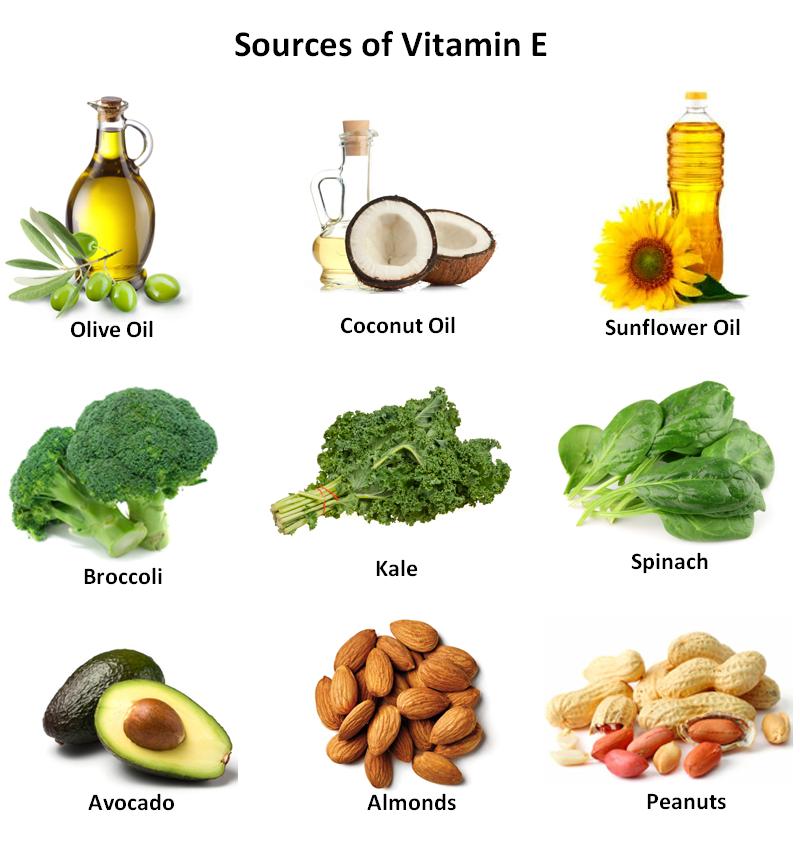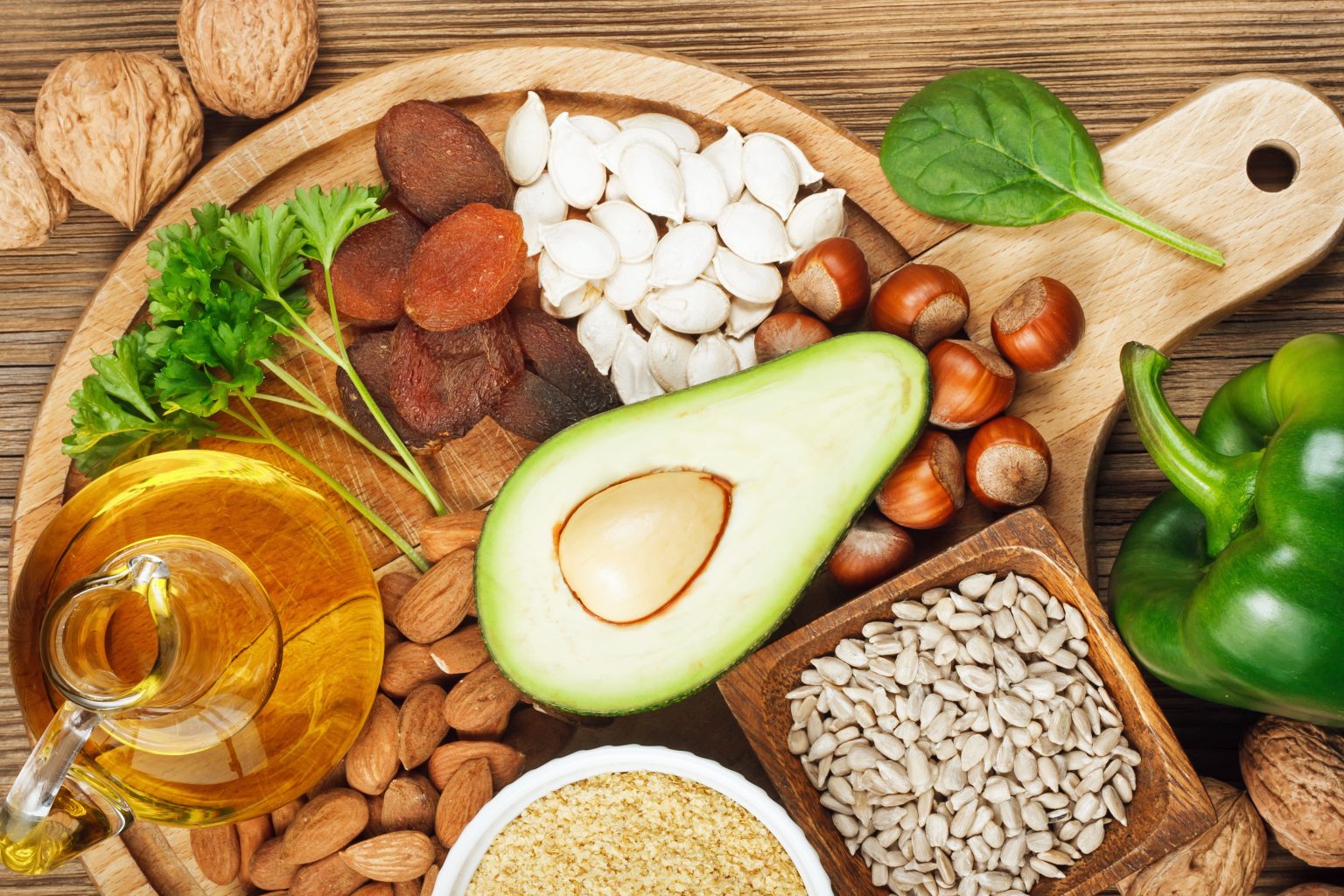vitamin E is often thought of as a single compound, it’s a group of eight fat-soluble compounds with powerful antioxidant effects.
Vitamin E is a nutrient found in many foods. It’s an important vitamin that has many benefits, including helping to protect cells from damage. While you can get vitamin E from food, it’s also available as a supplement. Vitamin E supplements are typically made from vegetable oils. Vitamin E is important for many reasons. It helps your body to -Protect cells from damage -Maintain healthy skin and eyes – Boost your immune system – Support reproductive health. Learn more about the importance and source of vitamin E in this article. It is stored in the body’s fatty tissues and liver.
What are the benefits of vitamin E?
Vitamin E is having tremendous benefits altogether that would be expressed in words but can be felt in its regular consumption. It has anti-inflammatory properties that can reduce this unpleasantness
Can reduce heart disease risk: High blood lipids and pressure and triglycerides increase your risk of heart disease, but Vitamin E with Omega-3 supplements can reduce LDL and triglyceride levels in people with metabolic syndrome, including high blood fat levels.
Can help manage dysmenorrhea: This is characterized by frequent and severe menstrual pain such as pelvic pain and cramps, if women take Vitamin E in a condition then pain can be cured without drug intake. Additionally, a 2021 study showed that a combination of Vitamin E and C daily for 8 weeks can get women rid of this pelvic pain of menstruation
Can improve antioxidant defenses and reduce markers of oxidative stress: Oxidative stress can lead to cellular damage and increased disease risk because it occurs when there’s an imbalance between your body’s antioxidant defenses and the production and accumulation of compounds called reactive oxygen species (ROS). As shown Vitamin E has antioxidant properties and increases the level of glutathione peroxidase (GPx), this is a group full of antioxidant enzymes that protect your cells from oxidative damage and make you healthy from within.
Can benefit (NAFLD) nonalcoholic fatty liver disease: NAFLD can lead to serious liver damage and it happens due to obesity, insulin resistance, type II diabetes, and dyslipidemia, but thanks to Vitamin E it can be cured as it reduces the level of the liver enzymes alanine aminotransferase (ALT) and aspartate aminotransferase (AST), decreased blood lipid levels, and improved liver health.
Can give potential health benefits too such as lung function and certain symptoms of asthma in children and adults, it also cures eczema disorder of the skin.
What foods contain vitamin E?

Vitamin E is found in a variety of foods, including vegetable oils, nuts, and green leafy vegetables. While it is possible to get vitamin E from supplements, it is best to get this nutrient from food sources. Here are some foods that are high in vitamin E:
-Vegetable oils: Vitamin E is found in many types of vegetable oils, including soybean oil, olive oil, sunflower oil, and corn oil.
-Nuts: A variety of nuts contain high levels of vitamin E, including almonds, hazelnuts, and peanuts.
-Green leafy vegetables: Spinach and Swiss chard are two examples of leafy greens that are excellent sources of vitamin E.
Consumption of natural Vitamin E can create wonderful results in your body altogether, you just need to be mindful about Vitamin E proportion as extra Vitamin E can cause some poor effects on the body.
How much vitamin E do you need?
Vitamin E is a nutrient that is essential for human health. It is a fat-soluble vitamin, meaning it dissolves in fat and can be stored in the body. Vitamin E is found in food and supplements.
The recommended daily amount of vitamin E for adults is 15 milligrams (mg). However, different people may need different amounts of vitamin E depending on their age, sex, and health conditions. For example, pregnant women and people with certain medical conditions may need more vitamin E than other people.
Are there any risks associated with taking vitamin E supplements?
Vitamin E is an important nutrient that has many benefits for the body. However, like with any nutrient, there are also some risks associated with taking vitamin E supplements.
The most common risk associated with taking vitamin E supplements is an upset stomach. This can be avoided by taking supplements with food or milk. Other side effects may include diarrhea, headache, and fatigue.
More serious risks associated with taking vitamin E supplements include an increased risk of bleeding and a decrease in the absorption of other nutrients such as vitamins A and D. Therefore, it is important to speak with a healthcare professional before starting any supplement regimen, especially if you are already taking others.
If you’re considering adding more vitamin E to your diet, talk with a healthcare professional first about your specific health concerns.













